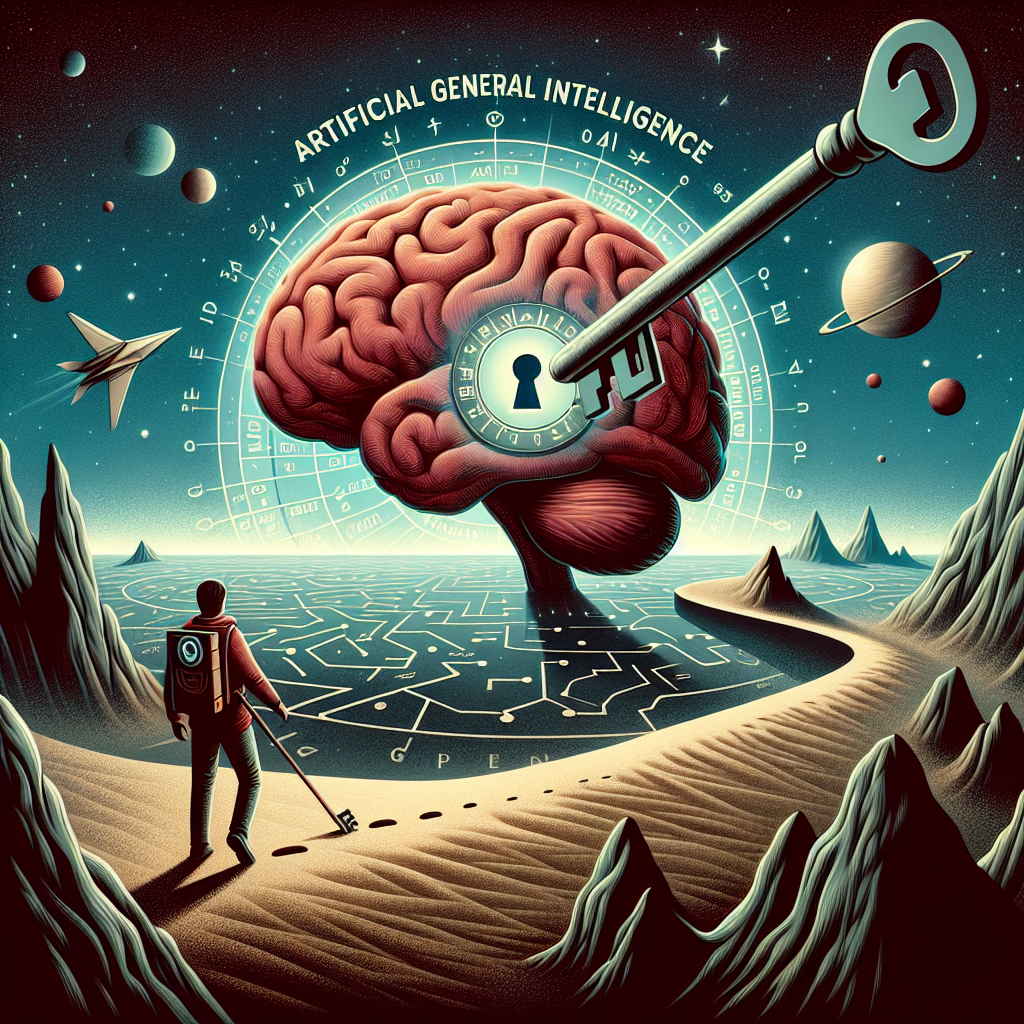Artificial General Intelligence (AGI) is a term that has been floating around in the field of artificial intelligence for quite some time now. It refers to the hypothetical ability of a machine to perform any intellectual task that a human can do. While we have seen significant advancements in narrow AI, which is designed for specific tasks like image recognition or language translation, AGI remains a distant goal. However, with the rapid pace of technological advancements in AI, it is worth exploring the possibilities and challenges of unlocking the mysteries of AGI.
AGI holds the promise of revolutionizing industries, improving efficiency, and solving complex problems that have long plagued humanity. Imagine a machine that can think, reason, and learn like a human, but at a much faster pace and with almost limitless memory capacity. Such a machine could potentially revolutionize fields such as healthcare, finance, transportation, and many others. But what lies ahead on the path to achieving AGI? Let’s delve deeper into this topic and explore the possibilities and challenges of unlocking the mysteries of AGI.
The Road to AGI: Possibilities and Challenges
The road to achieving AGI is paved with both possibilities and challenges. On one hand, the rapid advancements in AI technology have brought us closer to achieving AGI than ever before. Machine learning algorithms, deep learning, neural networks, and other techniques have enabled machines to perform tasks that were once thought to be impossible for machines to do. But on the other hand, there are still many hurdles to overcome before we can truly unlock the mysteries of AGI.
One of the biggest challenges in achieving AGI is the issue of generalizability. While current AI systems are very good at performing specific tasks, they often struggle when faced with new, unseen situations. For example, a machine learning algorithm trained to recognize cats in images may perform well on a dataset of cat images it was trained on, but it may fail miserably when presented with a new, unseen image of a cat in a different pose or lighting condition. This lack of generalizability is a major roadblock in achieving AGI, as a truly intelligent machine should be able to adapt and learn from new situations.
Another challenge in achieving AGI is the issue of common sense reasoning. While AI systems have made great strides in tasks like image recognition and natural language processing, they still lack the common-sense reasoning abilities that humans possess. For example, a human can easily understand the concept of “if it’s raining, then the ground will be wet,” but a machine may struggle to make this logical deduction without explicit training data. Developing AI systems that can reason like humans and understand concepts like cause and effect is a key challenge in achieving AGI.
Ethical considerations also play a significant role in the quest for AGI. As machines become more intelligent and autonomous, questions arise about the ethical implications of AGI. How do we ensure that AGI systems are aligned with human values and goals? How do we prevent AGI systems from causing harm or making decisions that go against human interests? These are important questions that need to be addressed as we move closer to achieving AGI.
Despite these challenges, there are also many possibilities and opportunities that come with unlocking the mysteries of AGI. AGI has the potential to revolutionize industries, improve efficiency, and solve complex problems that have long plagued humanity. From healthcare to finance to transportation, AGI could transform the way we live and work. Imagine a world where machines can assist doctors in diagnosing diseases, predict financial market trends with unprecedented accuracy, and revolutionize transportation with self-driving cars. The possibilities are endless.
FAQs
Q: When will we achieve AGI?
A: It is difficult to predict an exact timeline for achieving AGI, as it depends on many factors such as technological advancements, research breakthroughs, and funding. Some experts believe that we could see AGI within the next few decades, while others are more cautious and believe it may take longer. It is important to note that achieving AGI is a complex and challenging goal that will require significant research and development efforts.
Q: What are the potential risks of AGI?
A: While AGI holds great promise, there are also potential risks and challenges associated with it. One of the biggest concerns is the issue of control and safety. As machines become more intelligent and autonomous, there is a risk that they could act in ways that go against human interests. Ensuring that AGI systems are aligned with human values and goals is a key challenge that needs to be addressed. There are also concerns about job displacement, privacy, and security risks associated with AGI.
Q: How can we ensure that AGI is aligned with human values?
A: Ensuring that AGI is aligned with human values and goals is a complex and challenging task. One approach is to develop AI systems that are transparent, interpretable, and accountable. This means building AI systems that can explain their decisions and actions in a way that humans can understand. Another approach is to involve ethicists, policymakers, and other stakeholders in the development and deployment of AGI systems. By taking a multidisciplinary approach and considering ethical considerations from the outset, we can help ensure that AGI is aligned with human values.
In conclusion, unlocking the mysteries of AGI is a complex and challenging task that will require significant research and development efforts. While there are many possibilities and opportunities that come with achieving AGI, there are also risks and challenges that need to be addressed. By exploring the possibilities and challenges of AGI, we can better understand what lies ahead on the path to achieving this transformative goal. Only time will tell what the future holds for AGI, but one thing is certain: the journey to unlocking the mysteries of AGI will be a fascinating and important one.

